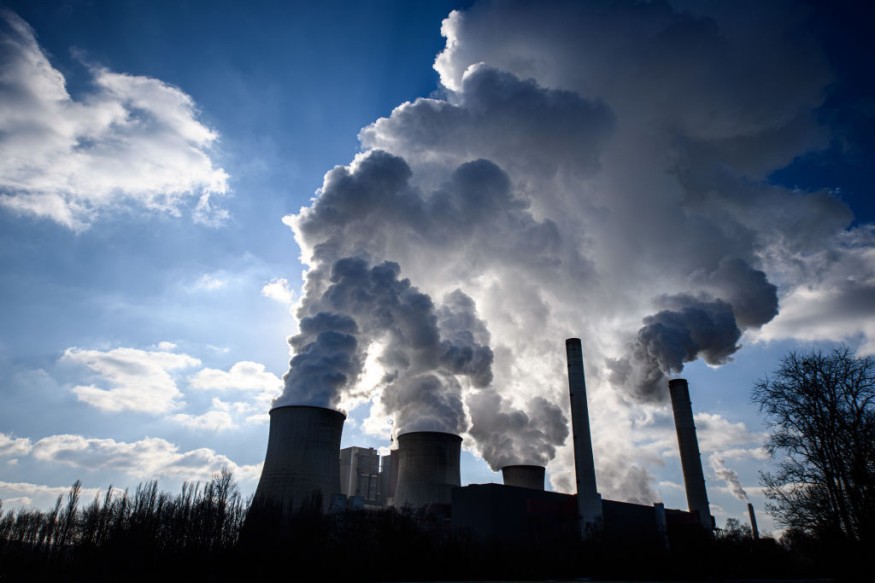Major global investors and insurers are finding it difficult for fossil fuel companies and their contractors in Australia to insure and finance major ventures due to efforts by major global investors and insurers to reduce their exposure to risks from the climate crisis.

According to a contractor, a worldwide bid for cover for the infamous Queensland Adani coalmine failed, with more than 40 underwriters refusing to back it.
Submissions to a legislative inquiry pushed by pro-coal backbenchers and supported by Morrison government ministers show the main impacts on the fossil fuel industry.
Australia's Lack of Strategy
A senior UK government environment official said earlier this week that Australia's lack of an effective strategy to address the climate crisis had left it isolated among major economies.
In a report to the government, the Australian Council of Superannuation Investors (Acsi) cautioned that "the price of climate risk is rising" and that an unplanned or "late transition to a low-emissions environment would cost the Australian economy more."
Insurance

BMD, which is constructing a big section of the rail line for the Adani mine, said it had never been "exposed to such a significant and imminent risk" in its more than 40 years of operating in Australia after insurers declined to underwrite any of its work related to the coal project.
BMD wrote that it was aware that the "global insurance industry is withdrawing its funding for coal-related projects, and that coverage for coal-related projects going forward would be limited."
In 2020, BMD's unidentified insurance provider told the corporation that it couldn't find public liability insurance, environmental security insurance, or coverage for its directors and officers. The company's work with Adani - now known as Bravus - was explicitly exempt from the policies.
To ensure the industry's funding, BMD recommended that state or federal governments "provide the appropriate protection from public funds."
"There is no way policymakers can be taking up the tab," said John Hewson, an economist, and former Liberal politician who was chairman of insurance broker GSA before last year.
Related Article : Companies Criticize Victoria, Australia's 'Worst EV Policy'
Market Troubles
He said that coal firms' difficulties obtaining financing and insurance were "not a business weakness, nor is the market working?"
Appea's CEO Andrew McConville wrote that "intelligence asymmetry by the wider financial market, fueled by the political interests of shareholder activists" could lead to a capital shortage.
Environmental Awareness

Woodside, a major Australian gas supplier, said in a separate submission that investing more time responding to concerns from customers and insurers on environmental and social problems was "consistent with being a responsible company."
The Minerals Council of Australia, a mining industry organization, argued in its submission that there was an increased risk for insurers in backing fossil fuel ventures.
According to the Insurance Council of Australia, there is an increasing recognition that climate change and climate-related uncertainties are a financial danger that is affecting insurers' financial stability and resilience.
Insurers "provide vital economic cues about the evolving risk climate" through risk-based pricing, according to the ICA.
Climate Concern

"An increasing percentage of Australia's big lenders, faced with persistent activism, are refusing to be a party to new coal operations," wrote coalminer Yancoal, which is majority-owned by Chinese companies. Many are still considering their options for exiting their coal-producing businesses in the near future."
Financial banks, according to Yancoal, are more likely to fund fossil fuel firms than Australian financiers.
The (Acsi), which represents investors with over $1 trillion in assets under management, wrote that the global transition to low carbon emissions is still underway and is not contingent on investor and prudential regulator decisions in Australia.
"Unmitigated climate change will have devastating global consequences, including effects on human wellbeing, habitats, water supply, and habitat disruption," Acsi said. As a result, climate change poses a significant financial danger to the world economy."
For more Environmental news, don't forget to follow Nature World News!
© 2025 NatureWorldNews.com All rights reserved. Do not reproduce without permission.





